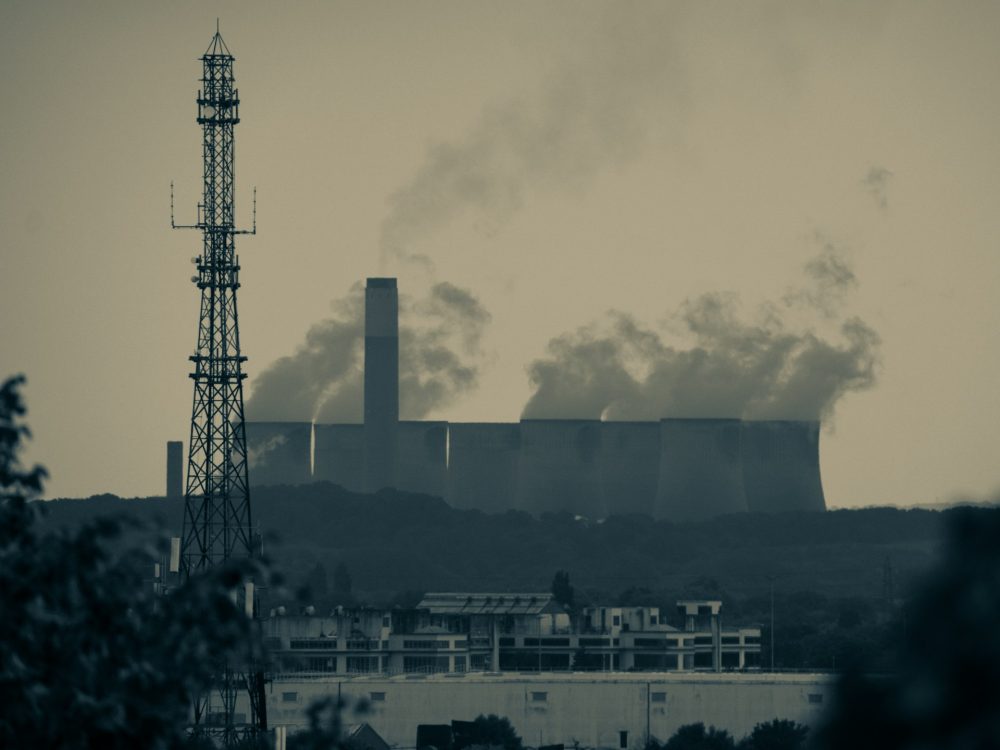Impact Investing
ECCO Warns: Italy Risks Missing Climate Targets Amid Rising Emissions and Policy Gaps
Italy risks missing its NECP targets, warns ECCO. The country must cut 84 million tons of CO₂ by 2030, yet emissions from transport and civil sectors are rising. Investments have fallen, policies lack coherence, and harmful subsidies persist. ECCO urges energy tax reform, clean tech incentives, and stronger climate governance to regain alignment.

The ECCO think tank raises the alarm: Italy risks missing its NECP targets. Transportation and civil engineering remain the most critical sectors.
On the eve of the thirtieth United Nations Conference of the Parties on Climate Change (COP30), Italy is lagging behind on its climate commitments
According to a new report by ECCO, the Italian climate think tank, our country is significantly behind on the targets set by the National Integrated Energy and Climate Plan (PNIEC): approximately 84 million tons of CO₂ equivalents remain to be reduced by 2030, equivalent to over 16 million tons per year. This gap weighs on competitiveness, public finances, and utility bills, in a context in which climate damage has already cost €12 billion in 2025 alone.
With the publication of the UNEP Gap Report, which measures the global distance from the goals of the Paris Agreement, ECCO raises the alarm: transport and the civil sector remain the main culprits of the slowdown. Emissions are not falling, and in some cases are even rising, while investments and long-term policies remain fragmented and insufficient.
“Without an immediate realignment of the NECP, Italy will pay twice: in competitiveness and in its bills. Fiscal and industrial decisions are needed that shift consumption and investment toward electricity, efficiency, and renewables,” commented Chiara Di Mambro , Director of Strategy for Europe and Italy at ECCO.
Looking in detail, the transport sector , responsible for 28% of national emissions, continues to grow, reaching +7% compared to 1990 levels . Despite efforts, there are just 333,000 battery-powered electric cars on the road , far from the PNIEC target of 4.3 million by 2030. Charging infrastructure also remains insufficient, with 67,500 points installed as of September 2025, a 19% increase in one year but still inadequate for future needs.
In the residential sector, emissions have returned to stability after the decline in 2021–2022, according to ECCO’s report. Investment , however, has drastically decreased from €120 billion in 2021 to just €20 billion in 2023, a sign of a loss of momentum in energy retrofitting. Industry has shown a structural decline in emissions since 2005, but the policy framework remains fragmented and lacking a medium- and long-term horizon, undermining investment.
For its part, the electricity sector has made progress , with 13.5 GW installed between 2023 and 2024 and another 4 GW in the first eight months of 2025, but the pace is not enough given that to date only 25% of the target of +70 GW by 2030 has been achieved. Even on the storage front, the road is long: of the 13 GWh installed in 2024, almost 59 GWh still need to be reached to meet the targets.
Although gas demand is declining and close to the levels forecast by the Italian National Energy Agency (PNIEC), new infrastructure investments continue, risking shifting costs to consumers. On the financial front, environmentally harmful subsidies have increased by €3.2 billion, reaching a total of nearly €24.2 billion. To make matters worse, electricity continues to incur fees and taxes up to three times higher than gas and approximately double those of diesel and gasoline.
Although the Italian Constitution has included environmental protection among its fundamental principles, a national climate law is still lacking. The PNIEC Observatory, which should monitor progress, is not fully operational, while the Monitoring Platform is the only new development. On the social front, the €9.3 billion Social Climate Plan for 2026–2032 has been presented, but it lacks a clear link to the new ETS2 system and an effective mechanism for assessing distributional impacts or energy poverty.
ECCO’s recommendations
ECCO calls for energy tax reform, with a review of electricity taxes and charges to make the benefits of clean technologies visible to citizens.
Also needed are the elimination of harmful subsidies, an acceleration of heat pumps, fast-charging infrastructure, and storage systems, and the creation of a multi-year automotive fund to support the electric vehicle industry.
On the financial front, the ECCO think tank proposes a targeted use of ETS/ETS2 revenues, the involvement of CDP, SACE, and Invitalia as de-risking tools, and the strengthening of climate governance with a national law and a fully active Observatory.
__
(Featured image by Vilmantas Bekesius via Unsplash)
DISCLAIMER: This article was written by a third party contributor and does not reflect the opinion of Born2Invest, its management, staff or its associates. Please review our disclaimer for more information.
This article may include forward-looking statements. These forward-looking statements generally are identified by the words “believe,” “project,” “estimate,” “become,” “plan,” “will,” and similar expressions. These forward-looking statements involve known and unknown risks as well as uncertainties, including those discussed in the following cautionary statements and elsewhere in this article and on this site. Although the Company may believe that its expectations are based on reasonable assumptions, the actual results that the Company may achieve may differ materially from any forward-looking statements, which reflect the opinions of the management of the Company only as of the date hereof. Additionally, please make sure to read these important disclosures.
First published in ESG NEWS. A third-party contributor translated and adapted the article from the original. In case of discrepancy, the original will prevail.
Although we made reasonable efforts to provide accurate translations, some parts may be incorrect. Born2Invest assumes no responsibility for errors, omissions or ambiguities in the translations provided on this website. Any person or entity relying on translated content does so at their own risk. Born2Invest is not responsible for losses caused by such reliance on the accuracy or reliability of translated information. If you wish to report an error or inaccuracy in the translation, we encourage you to contact us.

-

 Crowdfunding4 days ago
Crowdfunding4 days agoReal Estate Crowdfunding in Mexico: High Returns, Heavy Regulation, and Tax Inequality
-

 Africa2 weeks ago
Africa2 weeks agoAgadir Allocates Budget Surplus to Urban Development and Municipal Projects
-

 Cannabis1 day ago
Cannabis1 day agoSouth Africa Proposes Liberal Cannabis Regulations with Expungement for Past Convictions
-

 Biotech1 week ago
Biotech1 week agoVolatile Outlook for Enlivex Therapeutics as Investors Await Clinical Catalysts
















